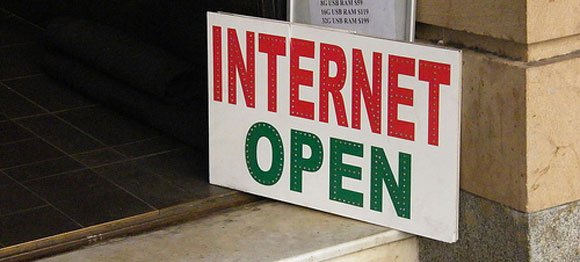Online privacy or internet privacy is the internet user’s personal privacy that is connected to the uses of data, storing of any type of data such as user name, password, mail ids, social media related data, mail correspondences and many such issues whichever is related to internet.
In an unambiguous way, as is prevalent, if any one is using internet, he or she is exposed to the data espionage. Many internet users set up their accounts in different social networking sites, some fill their data with credit card or bank account related information for some specific purposes, but all this information are very much vulnerable to infiltration. There are many companies who are infiltrating other’s information and selling or sending the same to some others. This article is very much relevant in these days of massive internet hackings. Experts in the field view that there is no privacy to our internet based activities.
Since the situation is very serious in this technological world, many companies are coming up with the specialized privacy solutions. Some social networking sites have also the facilities of protecting personal information. Facebook, as for example, has the privacy setting features for all its registered users. The site has also the facility for blocking certain specific individuals from accessing your profile, option for choosing your friends but not allowing them to see your profiles like videos and pictures as your privacy. Twitter and Google Plus also has the same types of facilities. It is the users who can have the prerogatives of applying such settings in the internet.
Cookies and Privacy
The HTTP cookies are the stored data facilities which assist the user to automatically access to many of the websites or the web features. The facility is also helpful for tracking by the user from the stored data for some special usages by utilizing the cookie. But these cookies are ultimately the resources for the hackers who ultimately infringe upon the privacy of the users. Actually cookies are the main sources for the advertisers who target their potential customers. Although, browser like Mozila Firefox has the facility of deleting the browsing facility, but company like United Virtualities has the substitute for this. Unlike cookies, Persistent Identification Elements (PIEs) can not be quickly detected nor can it be deleted, rather it can retrieve any deleted cookie. It is more powerful to store more data than a cookie. The websites those are connected with the PIE, mark your browser with a flashing. Although, disabling your cookies is possible, but when you opt for disabling your cookies, you are avoiding your privacy risks, but on the other hand, you are limiting the functionality of many of the websites.
The Latest Development on Online Privacy
On last Thursday, USA government has proposed a bill in the name of “Bill of Rights” for enabling the consumers with more online privacy while empowering the government for policing on the internet browsing service providers like Facebook and Google and others. These internet firms use different types of personal data of their users for promoting the ads. Although there is no abrupt obligation on these types of internet firms, it is a part of wider plan for Americans to have more control over their data being dispersed over the web. This bill has been well acknowledged by the advertisement networks of Microsoft Corporation, Yahoo Inc and Google Inc. The companies have agreed to follow the system of “Do Not Track” technique in their web browsers. The policy has been under the consideration of Federal trade Commission, USA, ever since 2010. The bill emphasizes on the consumer trust as is needed for the incessant growth of the technology powered economy. That is why President Obama has made his voice heard on this bill.
The USA administration has felt that the action is being adopted so that online advertisers can realize the kind of progresses is expected through some voluntary actions. The action is also being seen as the World Wide Consortium to have more teeth for safeguarding its effective and discourage the collection of consumers’ personal data.
The privacy bill of Rights has seven basic protections that internet users can expect from the internet firms.
- Consumers can have the control over the data collection aspirations of the companies
- Companies need to be transparent about their plans of use of data
- Companies must show their respect to the data sourcing contexts
- The data sourcing contexts should be duly disclosed
- Companies must ensure that they are fully answerable for handling the data
- The data is fully secured with the companies
- The companies are entirely responsible for complete privacy measures

